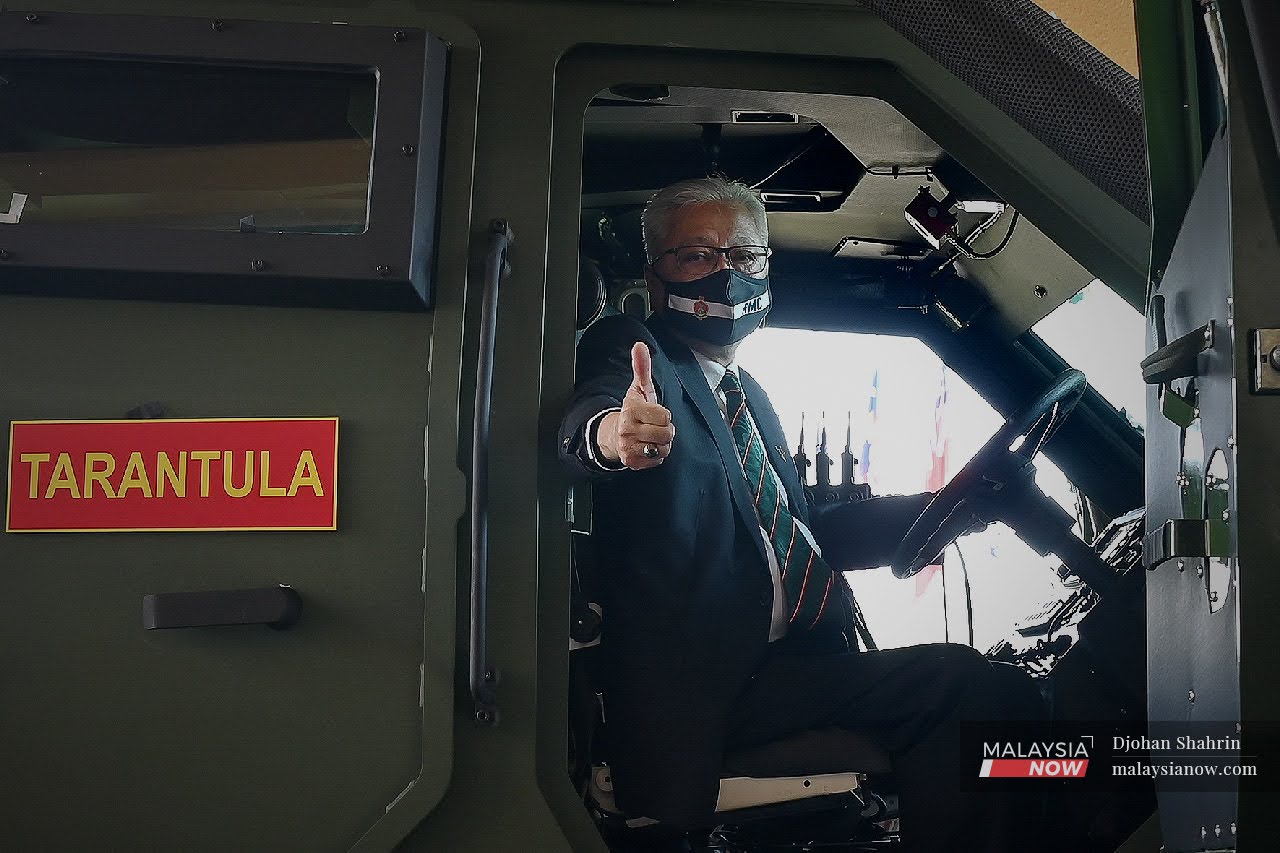The colours of Ismail: From student leader to second pandemic prime minister
He has a colourful past in campus activism and is the only former opposition leader to be appointed as prime minister.
Just In
If there existed a list of people most likely to become prime minister one day, Ismail Sabri Yaakob, like Abdullah Ahmad Badawi who served from 2003 to 2009, might not be on it.
And unlike Abdullah, who took over a post occupied for 22 years by someone whose rule was marked with progress and regress alike, Ismail will be taking over from someone who had barely warmed his seat before being forced to step down, interrupting the huge task of bringing the country out of a massive Covid-19 crisis.
But despite the short tenure of his predecessor, Ismail, 61, has a hard act to follow. He will now get a taste of what it’s like being in the hot seat in the midst of a pandemic.
Not much is known about the man who takes his oath of office today to continue the Perikatan Nasional government after its temporary fall from power.

But already, his appointment marks several firsts. For one, he is the fastest deputy prime minister to rise to power. He is also the only former opposition leader in Parliament to become prime minister.
Three years ago, he was the rural and regional minister – hardly the usual post of influence on the route to prime ministership. And perhaps with the exception of Tunku Abdul Rahman, he is the only prime minister never to have held the education portfolio.
But who is Ismail Sabri Yaakob?
Campus activism
The Temerloh boy, whose parents migrated from Kelantan, has a colourful past not unlike the sometimes blinding shirts he wears during official appearances.
Temerloh is the birthplace of many activists, mostly from the left, and Ismail is no exception.
His involvement in the student activism of the early 1980s is not widely known.

As a law student at Universiti Malaya, once the bastion of radical student activists, Ismail was active in PMUM, the university’s vocal undergraduates association of which he became president in 1982.
His elder brother, Kamarazaman Yacob, was among the stalwarts of PMUM in the 1970s as well as a member of UM’s Socialist Club. He championed issues such as poverty alongside other prominent student leaders of that time including Hishamuddin Rais, Yunus Ali, Adi Satria and Hassan Karim.
The peak of campus activism in Malaysia was marked by nationwide protests during the time of second prime minister Abdul Razak Hussein, culminating in the Baling demonstration in December 1974 where students took up the cause of farmers in Baling, Kedah.
The authorities had then hauled up student activists, including Kamarazaman and Adi, detaining them under the Internal Security Act (ISA).
Former activist Hishamuddin, now 70, views Ismail’s appointment as a sign that the Umno leadership is undergoing a generational change.
“In terms of age, Ismail is considered young compared to the others,” the former ISA detainee, who for decades lived a life of exile, told MalaysiaNow.

Hishamuddin added that Ismail, unlike most others who had led Malaysia, does not come from an elite family.
He said Ismail was not only exposed to his brother’s political understanding but also grew up in Lubuk Kawah and Temerloh, two places in Pahang which he said are known as “breeding grounds” for the Malay nationalist struggle.
“He knows the history of Umno. He is aware of it,” said Hishamuddin, who as an exile in London had met Ismail when the latter was the political secretary to Sabbaruddin Chik, a prominent Umno leader and a former Temerloh MP who served in Mahathir’s Cabinet.
Challenging future
One close associate who did not wish to be named said people around Ismail would often grow “tired” of him, and had even turned against him.
“Two of his aides contested against him in Umno elections,” he said.

As a result, he added, Ismail has been careful about the people with whom he chooses to surround himself.
“Too careful, in fact – he sometimes ends up choosing the wrong people as his close friends. But that’s true of any politician,” he said.
For now, Ismail’s greatest challenge will be managing an administration tasked with navigating the country out of the pandemic while at the same time walking a fine line between friends and enemies.

His every move will be closely watched.
And he is under no illusion that he is politically safe just because he has the majority support of MPs.
After all, the manner in which his predecessor was ousted – marked by months of plotting and scheming by the same people who gave him the numbers – is still fresh in memory.
Additional reporting by Aliff Fikri.
Subscribe to our newsletter
To be updated with all the latest news and analyses daily.
Most Read
No articles found.



